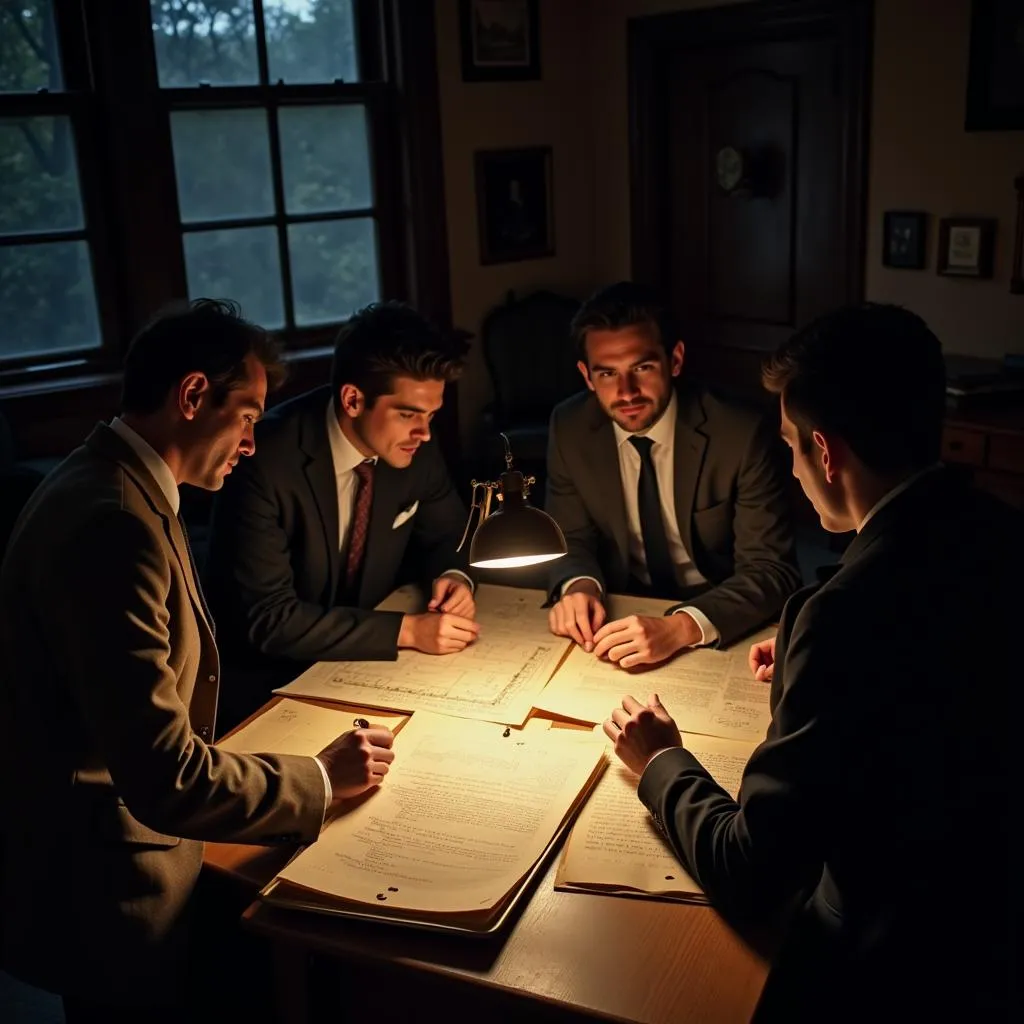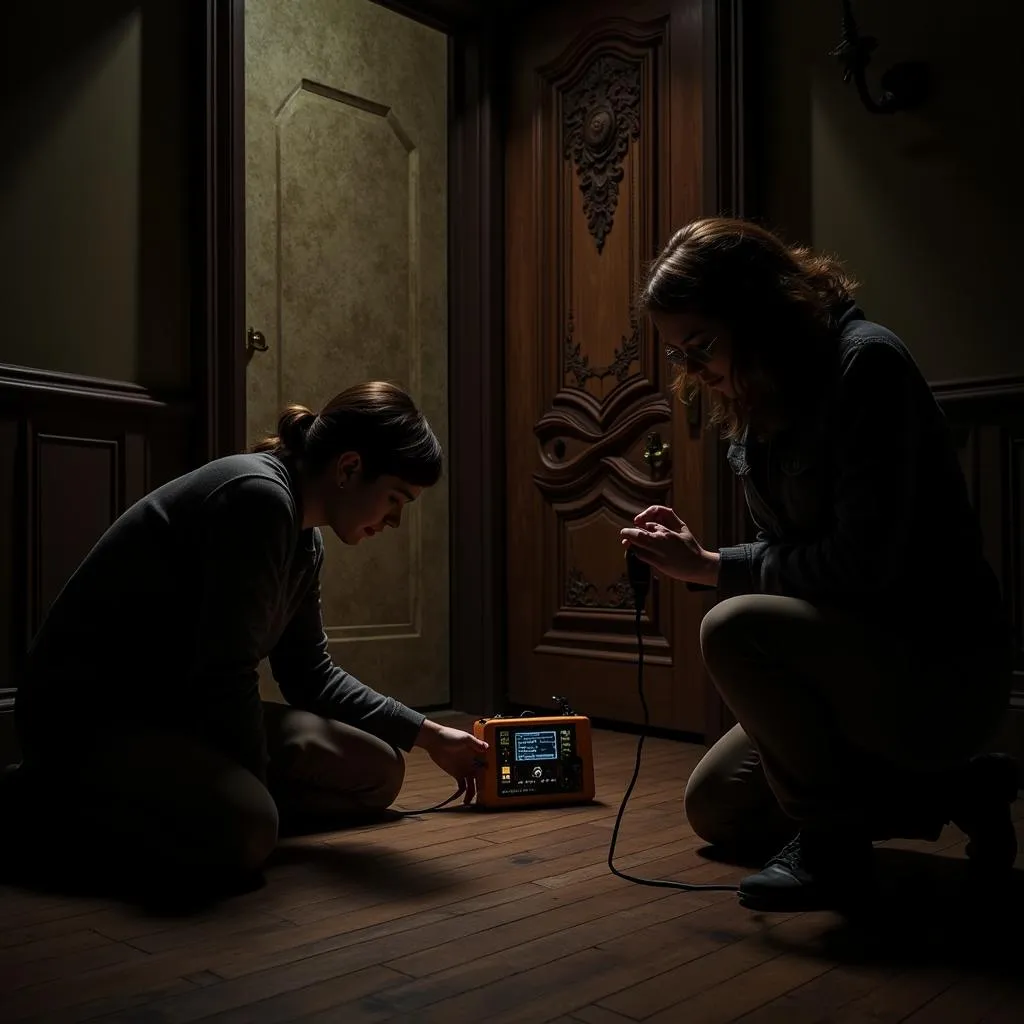Research Planning is the compass and map guiding every paranormal investigation. Without it, we’re stumbling in the dark, chasing shadows instead of illuminating the unknown. A well-structured research plan brings clarity, focus, and increases the likelihood of uncovering meaningful evidence.
Crafting Your Paranormal Research Strategy
Like any scientific endeavor, paranormal research demands meticulous planning. This involves several key stages:
1. Define Your Research Question
What specifically are you trying to understand or prove? Are you investigating a haunted location, seeking evidence of ESP, or attempting to document shadow person sightings? A clear, concise research question is paramount.
Example: “Is the reported apparition in the old asylum linked to the building’s history of patient mistreatment?”
2. Conduct Background Research
Knowledge is power in the paranormal field. Delve into historical records, eyewitness accounts, and previous investigations related to your chosen phenomenon or location. This background information provides context and helps you formulate hypotheses.
Don’t forget to explore:
- Local archives and libraries
- Online databases and historical societies
- Interviews with individuals familiar with the subject
3. Develop Your Hypotheses
Hypotheses are testable statements about the phenomenon you’re studying. These educated guesses guide your investigation and help you determine what kind of evidence to look for.
Example: “If the apparition is connected to patient mistreatment, then increased EMF fluctuations will be detected in areas where such abuse was documented.”
 Paranormal investigators reviewing documents
Paranormal investigators reviewing documents
4. Choose Your Research Methods
What tools and techniques will best answer your research question? Paranormal investigations often employ a combination of approaches, including:
- EVP (Electronic Voice Phenomena) recording: Capturing unexplained voices or sounds on audio devices.
- EMF (Electromagnetic Field) readings: Measuring fluctuations in electromagnetic fields that might indicate a presence.
- Thermal imaging: Detecting temperature anomalies that could suggest paranormal activity.
- Photography and videography: Documenting visual evidence, such as apparitions or unexplained phenomena.
Remember: Each method has its limitations. Using multiple methods increases the validity and reliability of your findings.
5. Design Your Data Collection Plan
Detail is crucial! Your plan should outline:
- Location scouting: Identifying specific areas of interest within your research site.
- Equipment setup: Ensuring proper placement and calibration of your investigative tools.
- Timeline: Establishing a schedule for your investigation, including start and end times.
- Roles and responsibilities: Assigning tasks to each member of your research team.
- Safety protocols: Outlining procedures for ensuring the well-being of all investigators.
Analyzing and Interpreting Your Findings
The investigation itself is just the beginning. After collecting data, you need to:
- Organize and log all evidence meticulously.
- Analyze data for patterns, anomalies, and potential correlations.
- Compare your findings to your initial hypotheses.
- Consider alternative explanations for any unusual observations.
- Draw logical conclusions based on the totality of the evidence.
 Paranormal investigation team setting up equipment
Paranormal investigation team setting up equipment
Ethical Considerations in Paranormal Research
Responsible paranormal investigation goes beyond data collection. Always prioritize:
- Respect for the deceased and historical sensitivity: Treat any potential spirits and their former environments with dignity and reverence.
- Transparency and objectivity: Document your methods thoroughly and present your findings honestly, even if they don’t support your initial hypotheses.
- Safety of all involved: Never compromise the physical or emotional well-being of yourself or your team during an investigation.
Refining Your Approach
Paranormal research is an ongoing process of learning and refinement. Don’t be discouraged if your initial investigation doesn’t yield groundbreaking results. Each experience provides valuable insights that can inform future research endeavors.
Remember: a well-planned investigation, conducted with respect and an open mind, is a step closer to understanding the mysteries that lie beyond our perception.
Frequently Asked Questions
1. Do I need specialized equipment to conduct paranormal research?
While specialized equipment can enhance your investigation, you can start with basic tools like a digital recorder, camera, and flashlight.
2. Is it dangerous to conduct paranormal research?
Paranormal research can be safe as long as you prioritize safety protocols, research your locations beforehand, and never investigate alone.
3. How can I tell if my findings are significant?
Look for patterns, consistency, and evidence that aligns with your research question. Avoid jumping to conclusions based on isolated incidents.
For a deeper dive into specific research methods and tools, check out our resources on DIY market research tools and UX research templates.
4. What are some common mistakes to avoid in paranormal research?
Avoid confirmation bias, jumping to conclusions, and misinterpreting data. Always be critical of your own findings and seek multiple perspectives.
5. Where can I learn more about paranormal research planning?
Our website offers a wealth of resources, including articles and guides on research and planning.
Need Help With Your Paranormal Investigation?
Contact us! Our team at Paranormal Research is dedicated to providing guidance and support to both aspiring and experienced investigators.
Reach us at:
Phone: 0904826292
Email: research@gmail.com
Address: No. 31, Alley 142/7, P. Phú Viên, Bồ Đề, Long Biên, Hà Nội, Việt Nam
Our dedicated customer support team is available 24/7 to assist you. We also encourage you to explore our other informative articles and resources on our website, such as “Headlands research jobs” and “How to conduct a survey for research,” to further enhance your understanding and approach to Paranormal Research.